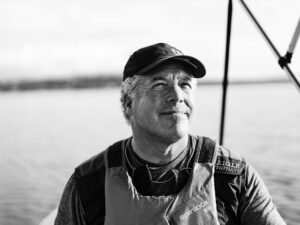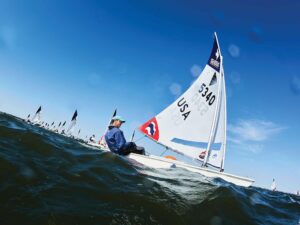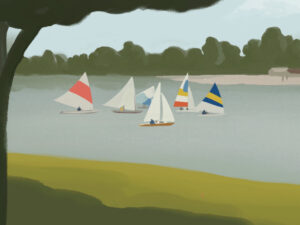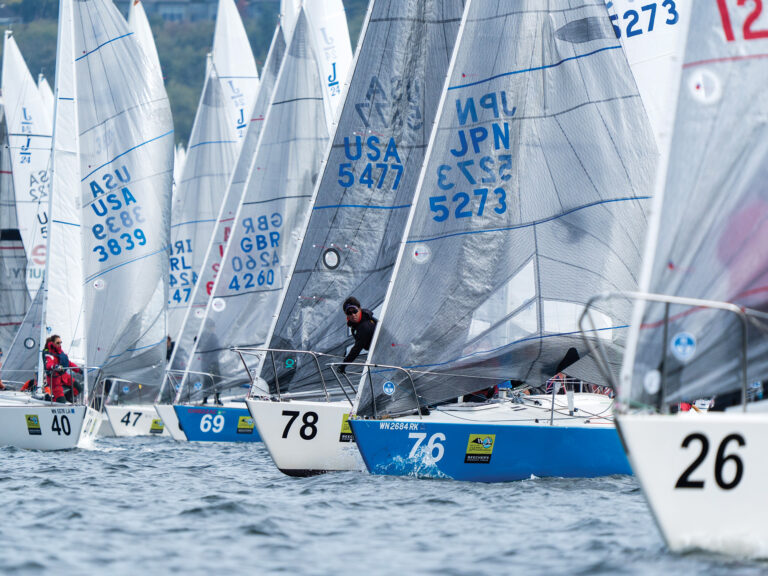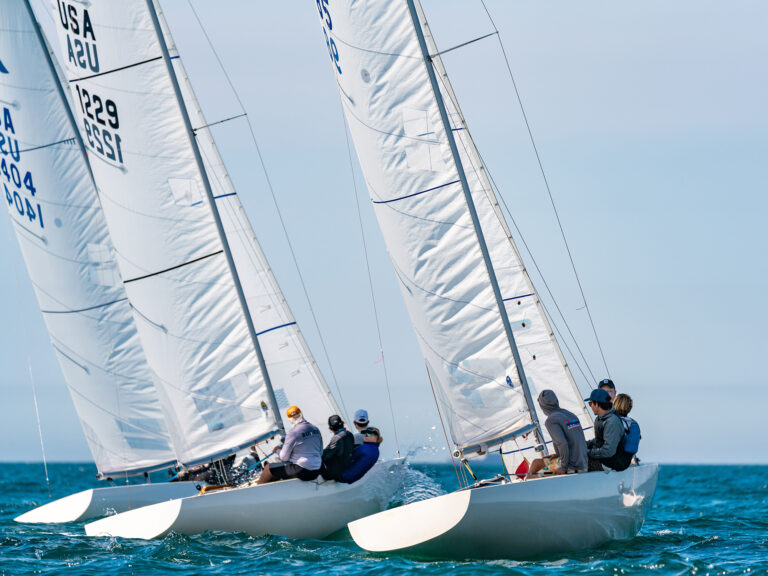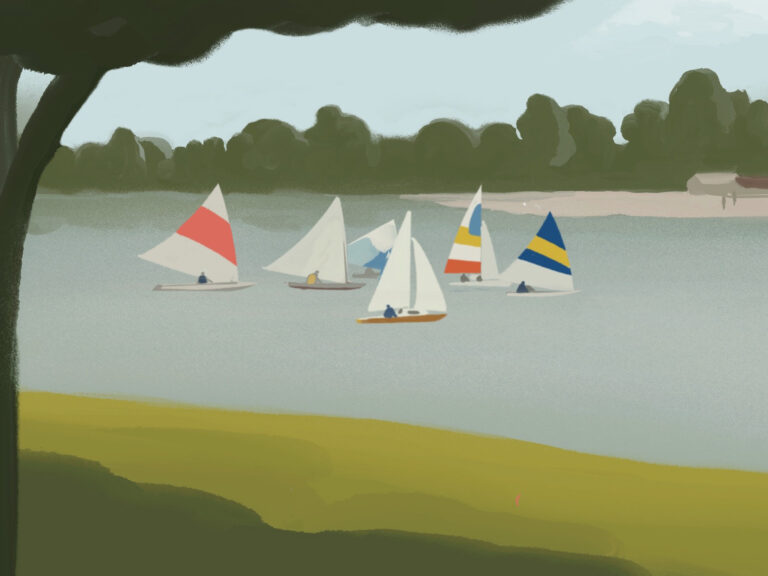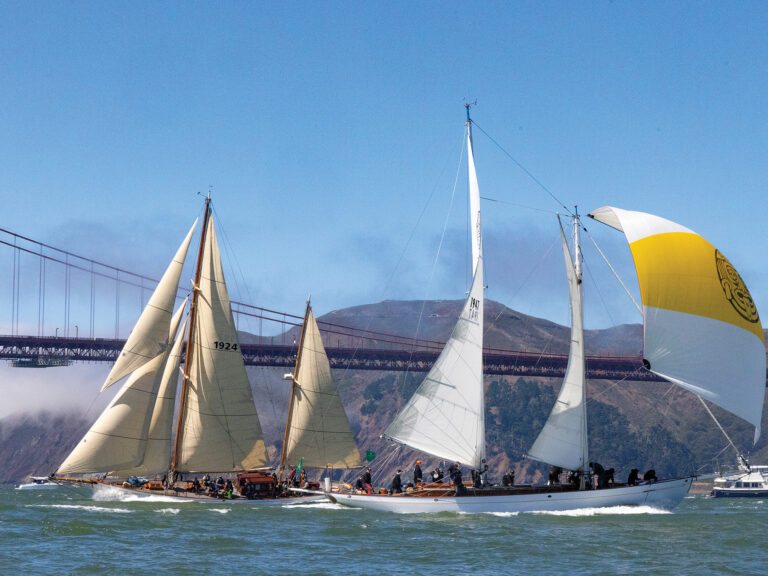Paul Pierre Cayard learned to sail in Oakland, Calif., and became one of the San Francisco Bay area’s bests. After his election to Sailing World elected him to join its Hall of Fame, we interviewed him about his career and the election.Sailing World: Who were your mentors in sailing?Paul Cayard: For sure Tom Blackaller was, early days. Dennis Conner was also very valuable to sail with, too, in the ¿95 America’s Cup. Those guys helped me the most in sailing. Outside of them, I’ve always been impressed with guys like Paul Elvstrom and Jochen Schumann¿guys who’ve gone to the Olympics for over 20 years and won medals every time.SW: What did you learn from Blackaller?PC: Blackaller was a guy who basically operated with the philosophy, ¿nothing risked nothing gained.¿ He was a risk taker and was very comfortable being a risk taker. He didn’t get anxious or nervous about that. He taught me that once you make a decision to go one way, go 110 percent with that call. If you get cold feet and try halfway down the path to change your decision, then for sure it’s going to be a loser. Sometimes there’s more than one way to get to where you’re trying to go, but you have to do it one way or the other, and you’ve got to do it 100 percent. He was not a conservative person by nature, and he was a risk taker, and he¿d live with the outcome happily either way. That’s why he was not anxious¿he was not afraid to lose. He was happy to be a warrior and live and die with the choices that he made. He put a little less energy into the preparation. He was more of a gut, seat-of-the-pants sailor.SW: How about from Dennis?PC: Dennis is afraid of losing¿I think I’m kind of afraid of losing by nature, too. Blackaller wasn’t calm, but he was at peace with the prospect of failure. Dennis and I are more the same where failure is a very scary connotation, and so Dennis for sure is much more driven¿at least when he was an active participant¿to do the homework and preparation to ensure that there was no risk of losing. He didn’t get bored or stagnated by doing the mundane work of being fully prepared. Blackaller couldn’t stand it. He would just come out of his skin if he had to go sail testing for more than half an hour.SW: You’ve named two mentors who are on opposite sides philosophically. Where did Paul Cayard come out?PC: I think I probably came out closer to the Dennis Conner side to be honest and humble about it. I wish my sailing record was as good as his, although in some ways my record’s more varied, but you know it’s fun to be like Tom. Tom was brash and bold. It’s kind of fun to go that way, but I think I came out more like Dennis being more willing to do the homework to try and ensure the win.SW: You’ve had some high-profile losses. Are you at peace with that?PC: With age I’m getting more at peace with that. That’s an interesting philosophical point in and of itself. Sometimes I question whether that’s a good thing; does that mean I’m getting less intense and accepting losses more easily, or is it just being realistic and mature about it and dealing with it and moving on to the next thing with no less intensity? When I was 25, if I lost a race, I was even vocally upset in the boat and it really bothered me to lose a race. Now I accept it more easily. I don’t know if that’s taking the edge off.SW: What would you consider your greatest achievement in racing to date?PC: I think my greatest achievement in sailing is that I’ve been able to compete at the highest level in so many different facets of the sport. That by itself is bigger than winning the Whitbread Around the World Race, or winning the Star worlds, or winning the Maxi worlds, or winning the Louis Vuitton Cup. It’s just that I’ve been at the top of the match-race circuit, I’ve been at the top of the America’s Cup game¿although I didn’t win, of course¿I have won the Star worlds, and I’ve won the Around the World Race. There aren’t many sailors who have done that.SW: What keeps you going?PC: What keeps me going is something new and interesting, frankly. I’ve always got my ear out. I just read about the new race from Fremantle to Fremantle in one-design 75-footers around Antarctica. I don’t have all the details, but that’s a great idea¿it sounds interesting to me. New challenges keep me going, but I’m also getting back in my Star boat and did really well in the Bacardi Cup. I didn’t do much training in it in the last year, so it makes me think that at 42 maybe I’m not over the hill as far as trying to do an Olympic campaign¿which is something I chased 20 years ago. So I may even come back to that. An Olympic medal is something I don’t have, and I would really relish that. The nice thing about the Olympic medal is that it transcends all sport. When you tell someone you got a gold medal in the Olympics, it really doesn’t need a lot of explaining.SW: How do you feel about joining our Hall of Fame?PC: It’s truly an honor to be elected to join such a group of people who have been so successful in our sport. For all of us on that list, the sport of sailing has to a large extent been our life. We¿re more than the occasional dabblers in the sport, and it’s an honor to be included and recognized for the achievements that have occurred in my career. It’s hard to put it into words, but when you think about mortality, you realize that you’re one of the blessed few people if you do something that gets recognized and retained somewhere, because in a way you stay alive after you’re gone.
